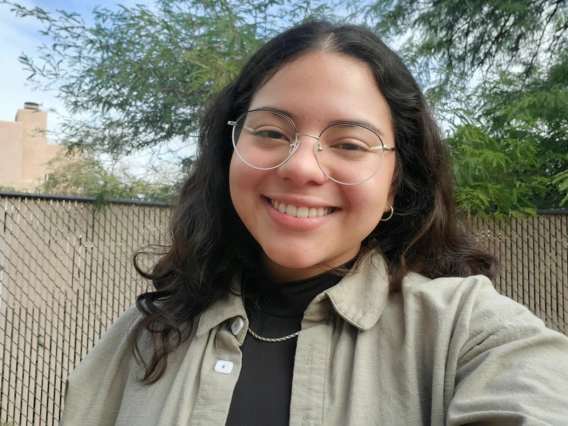
Q: What does your day-to-day look like?
Karla observed in the program if the students noticed anything or was of interest of them to bring
up later in a conversation such as the places they went. If you were to walk into the research lab
with Karla, they would just observe the students and questions that were thought provoking to
the students. Karla would take notes on what the responses of the students were from the group
meetings and what the answers would be. Karla tried to be more general of the questions,
looking for themes of profession. Practice, profession, place, people, and personal. Throughout
the program Karla was looking for these themes. It was a casual conversion, casual program.
Q: What was the surprising part of research?
After done collecting data and analyzing, the findings matched with the literature reviews that
had been published. All the background information research manifested itself into the findings.
Q: What skills have you gained from research?
Gained so many different skills. Learned technical skills such as programming that she didn’t
know existed before. Other skills were becoming a better listener and a better observant in terms
of listening for something she was looking for. Became more attentive, put goal in mind and was
able to look for things and ideas during the observant period. Learned how to be a good mentee.
Being able to be vulnerable brand new to this academic world, learned that you just must do
what the research is telling you. Learned to be more objective, needed to detach self to be more
objective. Usually, a sensitive person but needed to detach from self when analyzing data.
Q: How has research benefited you on an academic or professional level?
Became a better writer after writing a 22-page paper, her writing skills and reading skills
improved. Academic reading and journal reading increase, being able to get used to reading
academic journals was something she had to learn. Karla had to look for key words and learn
how to manage her time when reading journals.
Presentations has increased Karla became a better presenter. I have gained a lot more confidence
in my voice and the power it has especially as a woman of color in the world of academia has
learned to voice option and stick to beliefs. Learned a new coding program MaxQDA can use
that program for another research and in career. Learned how to manage expectations and
deadlines. Learned to be okay being wrong became open to. People providing feedback. Learned how to give work and receiving feedback. Learned how to be flexible and switching personality
based on audience.
Q: What did you mean when you said you learned how to be a good mentee?
As a mentee you have to be open to mentor giving you feedback, you cannot be stubborn and
closed off. Remind self that her mentor is there for her so be open to their feedback. It is a
humbling experience. To recognize there is some else there who is smarter than you that is there
to help you. Learned how to be flexible with their expectations were. Learn to understand mentor
and the way they think so she can get the most out of it. Karla was incredibly grateful and
acknowledged all the people. Loved her group so much.
Was part of the UROC program as AWARDSS. Spend most of the summer writing doing
presentation and a poster. Learned how to talk about research in smaller chunks.
Q: What has been the biggest challenge you faced with your research experience?
The financial part of it, because over the summer that is what she spent her time on. It was hard
to learn a new program and looking for findings in data was hard. Did not know what she was
looking for. Analyzing the data was hard had to step back and see what needed to be done to
make it make sense.
Q: What advice would you give other students getting started in research?
Be open to being a good mentee and be open to trying new things. Karla did not intend to do
research in the curology department but that is where she found her STEM people. Be open to
new ideas and new things. Be excited about research, if you love doing it them you will gain a
lot from it whether its successful or not. If you enjoy it you will get a lot out of it.
Q: Future plans?
Major is astronomy, really where passion lies but is passionate in education. How can you learn
better in science. From here on out Karla will direct her focus to astronomy to understand how
we learn better if she can keep those things side by side, she will have a good time. Those two
things are important so she will graduate and apply to graduate school and go to industry. Will
find ways to aid stem in students of color. As a person in STEM, we need to diversify the fields,
every field needs to be diversified. People work better together when we have different
backgrounds, and it creates better science.
Q: Anything else you would like to share?
Research allows you to know more about yourself, Karla learned that she needs to be there
physically collecting the research instead of gaining the data from someone else.

